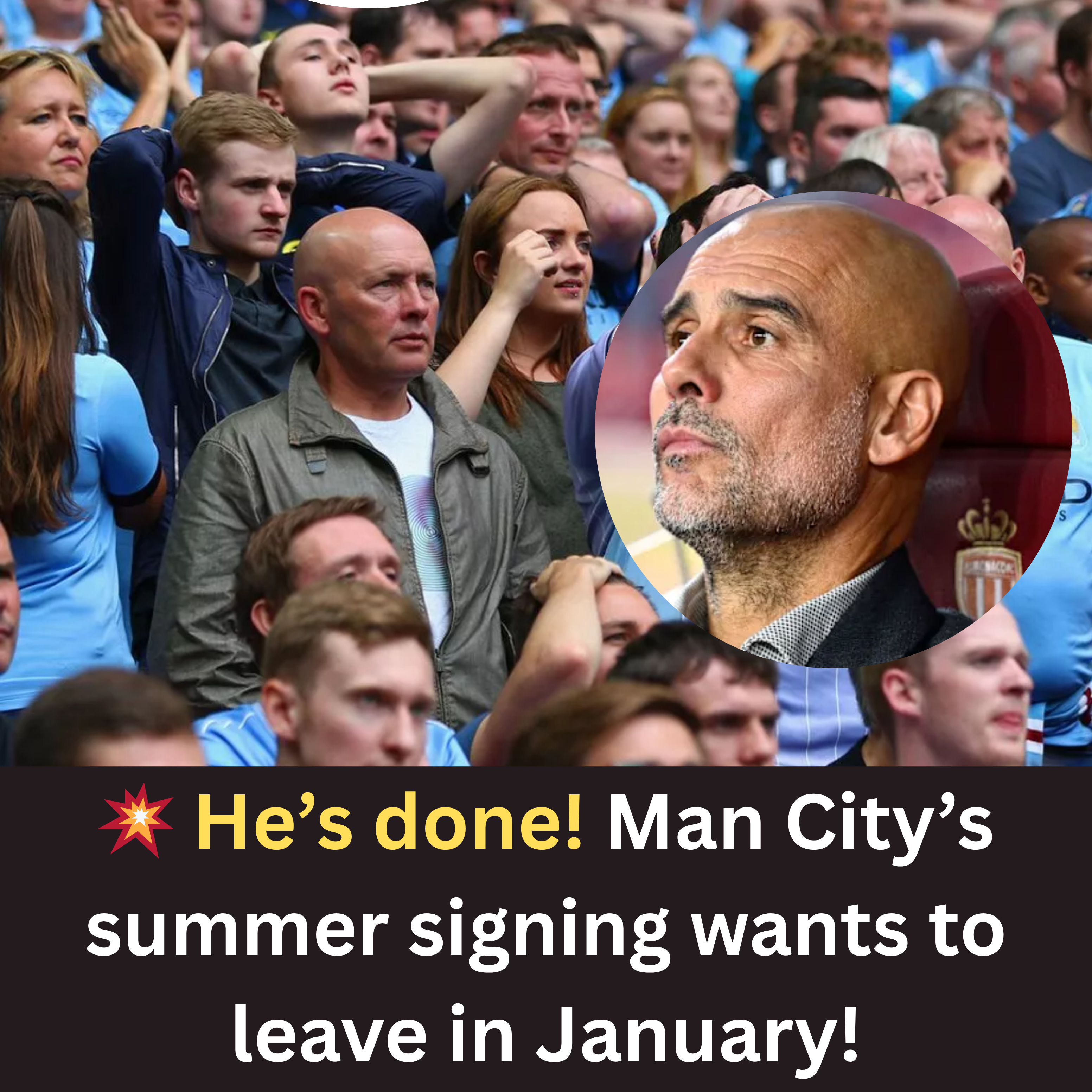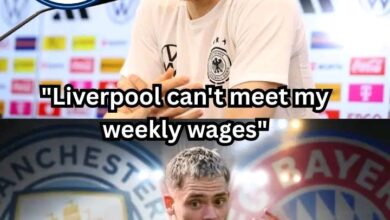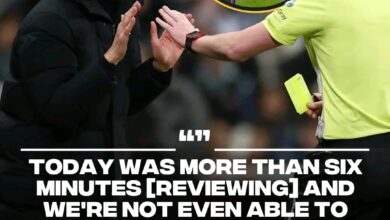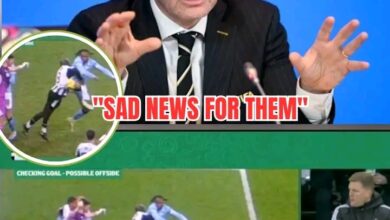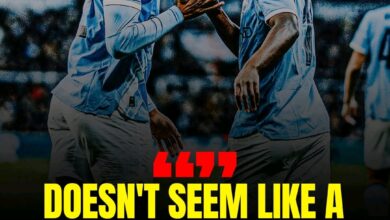Manchester Derby Controversy: Guardiola Condemns Fan Behavior as FIFA Considers Action
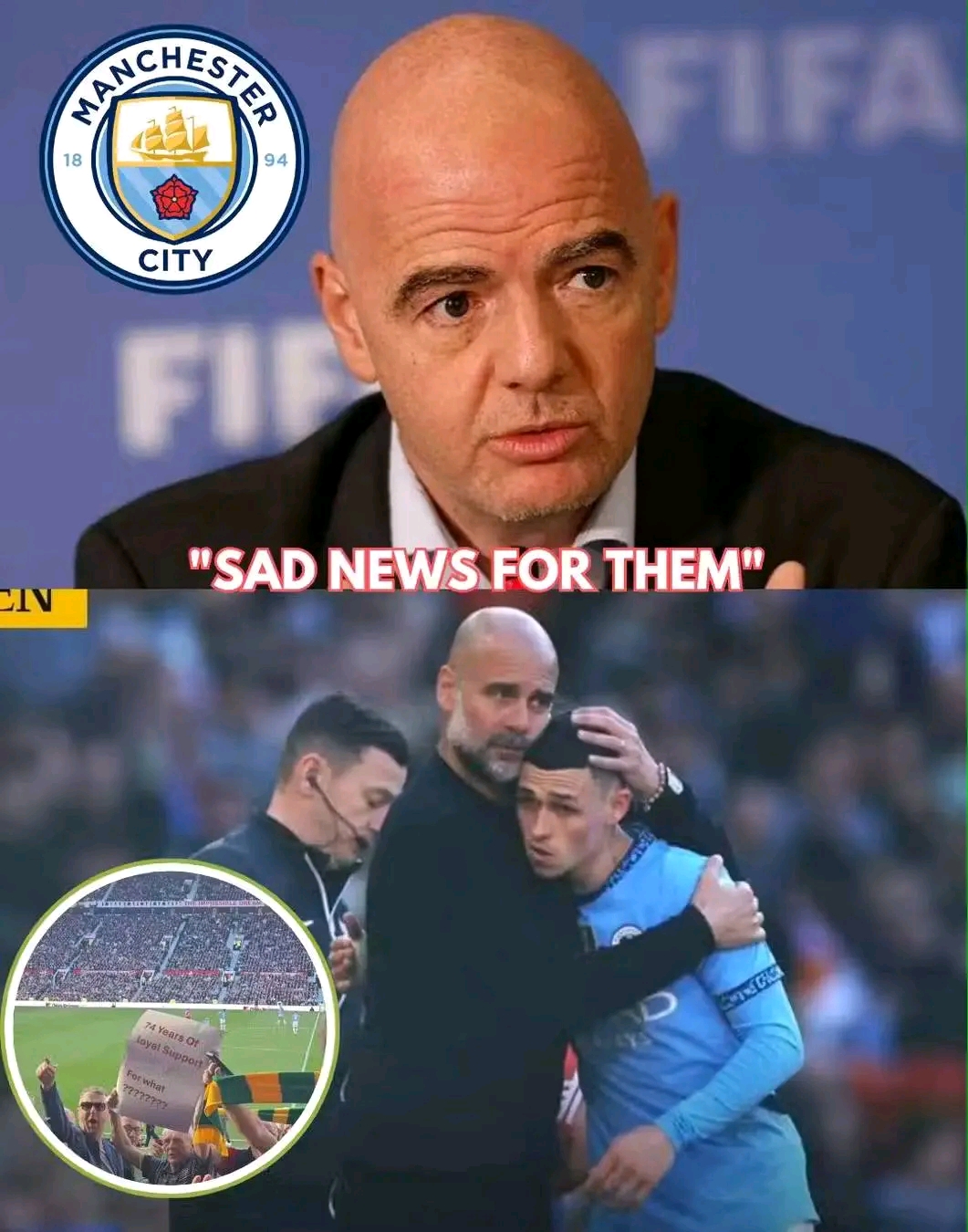
The latest Manchester derby has left the football world discussing more than just tactics and goals. What should have been a showcase of Premier League football’s finest turned into a sobering reminder of the sport’s ongoing battle against inappropriate fan behavior. The match, which ended in a disappointing goalless draw at Old Trafford, was overshadowed by offensive chants directed at Manchester City’s Phil Foden by a section of Manchester United supporters.
Pep Guardiola’s post-match press conference became less about analyzing his team’s performance and more about addressing the unacceptable conduct that marred what is traditionally one of English football’s most anticipated fixtures. The incident has reportedly caught the attention of FIFA, raising questions about potential sanctions and the broader implications for both clubs involved.
The Manchester derby on April 11, 2025, was anticipated to be a thrilling encounter between two of England’s most successful clubs. However, the 90 minutes of football failed to live up to expectations, with both teams struggling to create meaningful chances in what many described as a lackluster affair. The goalless draw reflected the cautious approach both managers seemed to adopt, perhaps influenced by the high stakes and intense pressure surrounding the fixture.
Manchester United, playing at home, had the opportunity to make a statement against their city rivals. Old Trafford was packed with expectant fans, many hoping to witness their team’s superiority over Guardiola’s Manchester City. However, the match itself became secondary to the disturbing scenes in the stands, where a group of United supporters chose to target Phil Foden with personal and offensive chants.
The atmosphere, which should have been electric with football passion, was tainted by the inappropriate behavior that would later dominate headlines and overshadow any tactical analysis of the game. This incident serves as a stark reminder that while football can bring out the best in people, it can also unfortunately highlight some of the worst aspects of fan culture.
The chants directed at Phil Foden were particularly personal and crossed the line from competitive banter into offensive territory. Reports suggest that the abuse was aimed not just at the player himself but also included references to his mother, representing a level of personal attack that has no place in football stadiums. These chants were audible throughout significant portions of the match, creating an uncomfortable atmosphere that extended beyond the immediate vicinity of those participating.
For Foden, who has established himself as one of England’s most promising young talents, the experience must have been deeply unsettling. The 24-year-old midfielder, who has consistently performed at the highest level for both club and country, found himself the target of abuse that went far beyond the usual competitive rivalry between opposing fans. Such personal attacks can have lasting psychological effects on players, potentially impacting their performance and well-being.
The incident highlights a broader issue within football culture, where the line between passionate support and unacceptable behavior continues to be crossed. While derby matches are known for their intense atmosphere and heated exchanges between rival fans, there must be clear boundaries that protect players’ dignity and personal lives. The fact that family members were mentioned in the chants makes this incident particularly egregious and unforgivable.
The impact extended beyond Foden himself, affecting his teammates, the coaching staff, and even Manchester United players who were forced to play in an environment where such behavior was taking place. This type of conduct reflects poorly on the sport as a whole and undermines efforts to promote football as a family-friendly entertainment option.
Pep Guardiola’s response to the incident was swift and unequivocal. The Manchester City manager, known for his thoughtful approach to press conferences, used his platform to deliver a scathing critique of the behavior exhibited by some Manchester United fans. His comments reflected not just anger but also disappointment that such incidents continue to occur in modern football.
“It shows a lack of class, and those responsible should be ashamed,” Guardiola stated, his words carrying the weight of someone who has experienced football at the highest levels across multiple countries and cultures. The Spanish manager emphasized that while he recognizes such behavior doesn’t represent Manchester United as an institution or the majority of their supporters, it remains completely unacceptable regardless of the context.
Guardiola’s condemnation was particularly significant because of his standing in the football world. As a manager who has worked in Spain, Germany, and England, he has witnessed various forms of fan culture and understands the importance of maintaining respect within the sport. His comments were not just about defending his player but about upholding the values that should be inherent in football at all levels.
The manager’s emphasis on the sport being “watched by millions around the world” highlighted his understanding of football’s global reach and influence. He recognized that incidents like this are not just isolated problems but reflect on the sport’s image internationally. Young fans watching the game, whether in the stadium or on television, are influenced by what they see and hear, making it crucial that adult supporters set appropriate examples.
Guardiola’s handling of the situation demonstrated leadership beyond just tactical management. By speaking out forcefully against the abuse, he showed that protecting his players extends beyond physical training and match preparation to include defending their dignity and well-being in all circumstances
Phil Foden’s performance during the Manchester derby was notably subdued, leading to his substitution for Jack Grealish as Guardiola sought to change the dynamics of the game. The young midfielder, who has been instrumental in Manchester City’s recent successes, appeared to struggle with his usual fluidity and creativity throughout the match. While it would be easy to attribute this directly to the hostile environment and personal abuse he was receiving, the situation is likely more complex.
Foden’s difficulties on the pitch could have stemmed from various factors beyond the crowd’s behavior. The intense pressure of derby matches, tactical adjustments by the opposition, and the natural ebb and flow of a player’s form all contribute to individual performances. However, the constant barrage of personal abuse undoubtedly created an additional layer of difficulty that no professional athlete should have to endure.
The decision to substitute Foden was tactical, but it also served to remove him from an increasingly uncomfortable situation. Jack Grealish’s introduction brought fresh energy to City’s attack and demonstrated Guardiola’s willingness to make changes when circumstances demand it. The substitution was not necessarily a reflection of Foden’s long-term form or ability but rather a response to the specific dynamics of that particular match.
Despite the challenging circumstances, Foden’s professionalism throughout the ordeal was commendable. Rather than reacting to the provocation or allowing it to escalate the situation, he maintained his focus on trying to contribute to his team’s performance. This maturity and composure, particularly given his relatively young age, speak to his character and the support system around him at Manchester City.
In the aftermath of the match, Guardiola was quick to dismiss any suggestions that Phil Foden was lacking in confidence or struggling with his form. The manager’s defense of his player was both public and emphatic, designed to counter any narrative that might suggest the young midfielder was experiencing deeper issues beyond this single difficult match.
“Phil’s energy and attitude in training remain exemplary,” Guardiola explained, highlighting the contrast between Foden’s professional approach during the week and the challenges he faced during the derby. This insight into the player’s daily demeanor provided important context for understanding that one subdued performance should not be taken as indicative of broader problems.
Guardiola’s reminder of Foden’s crucial role in Manchester City’s previous season’s title success served multiple purposes. It reinforced the player’s proven ability at the highest level while also providing perspective on his importance to the team’s overall strategy. The manager’s public backing of Foden sent a clear message to both the player and the wider football community about his continued faith in the midfielder’s abilities.
The manager’s approach demonstrated sophisticated man-management, recognizing that public support was essential for maintaining Foden’s confidence and ensuring that one negative experience didn’t snowball into a longer-term crisis. By emphasizing the player’s positive attributes and recent achievements, Guardiola was helping to rebuild any confidence that might have been affected by the abuse received during the derby.
This public defense also served to educate fans and media about the realities of player development and form. Guardiola’s experience with numerous world-class players has taught him that temporary dips in performance are natural and that knee-jerk reactions often do more harm than good. His measured response provided a masterclass in how to handle such situations professionally.
Guardiola’s analysis of the team’s overall performance during the derby extended beyond individual assessments to encompass the collective responsibility for the disappointing result. His recognition that recent performances had been below Manchester City’s usual standards demonstrated his understanding that football success is rarely dependent on a single player, regardless of their talent level.
“When the team isn’t performing at its usual level, it can make everyone look off form,” Guardiola observed, providing crucial context for understanding individual performances within the broader team framework. This perspective highlighted his sophisticated understanding of football dynamics and his refusal to scapegoat individual players for collective shortcomings.
The manager’s approach to addressing team performance issues reflected his experience and maturity as a coach. Rather than identifying specific culprits or making dramatic changes, he acknowledged that successful teams go through periods of adjustment and that maintaining unity during challenging times is essential for long-term success.
Guardiola’s emphasis on shared responsibility also served to protect Foden from unfair criticism while acknowledging that improvements were needed across the entire squad. This balanced approach demonstrated his skill in managing both individual and collective morale during difficult periods.
The manager’s comments suggested that he viewed the derby performance as part of a broader pattern that needed addressing through collective effort rather than individual blame. This approach is typical of successful long-term managers who understand that sustainable success requires maintaining team cohesion even during challenging periods.
Despite the disappointing derby result and the controversy surrounding fan behavior, Guardiola remained characteristically optimistic about Manchester City’s prospects for the remainder of the season. His focus on upcoming fixtures, particularly the FA Cup semi-finals and the remaining league games, demonstrated his ability to maintain perspective and motivation even after setbacks.
The FA Cup represents a significant opportunity for Manchester City to salvage silverware from what has been a challenging season by their elevated standards. Guardiola’s experience in cup competitions, both domestically and internationally, provides him with the tactical knowledge and psychological tools necessary to prepare his team for knockout football’s unique pressures.
The remaining league fixtures also offer opportunities for the team to rebuild momentum and confidence. While the title race may have become more challenging, Guardiola’s history suggests he will use every remaining game as a chance to improve his team’s performance and prepare for future challenges.
The manager’s optimism about turning things around was not just hollow positivity but reflected his genuine belief in his squad’s capabilities. His track record of responding to adversity with improved performances provides a solid foundation for this confidence, suggesting that the current difficulties may prove to be temporary setbacks rather than fundamental problems.
Guardiola’s forward-looking approach also served to shift focus away from the negative aspects of the derby toward more positive possibilities. This psychological management technique helps maintain team morale while providing supporters with reasons for continued hope and engagement.
The reported interest from FIFA in the Manchester derby incident represents a significant escalation that could have far-reaching consequences for both Manchester United and English football more broadly. World football’s governing body has increasingly focused on combating discrimination and inappropriate behavior in stadiums, making their potential involvement in this case particularly significant.
FIFA’s attention to the incident suggests that the offensive chants may have crossed thresholds that warrant international oversight rather than just domestic disciplinary action. This level of scrutiny reflects the global nature of modern football and the recognition that incidents in high-profile matches can have worldwide implications for the sport’s image.
The potential for sanctions against Manchester United, while still speculative, would represent a serious consequence for the club. FIFA’s disciplinary powers include the ability to impose fines, mandate stadium closures, or require games to be played behind closed doors. Any such measures would have significant financial and reputational implications for one of the world’s most recognizable football clubs.
The broader implications extend beyond just this single incident to encompass ongoing efforts to combat discrimination and inappropriate behavior in football. FIFA’s involvement could signal a more aggressive approach to addressing fan misconduct, potentially leading to stricter enforcement and harsher penalties across all levels of the game.
The international attention on this incident also highlights the responsibility that comes with football’s global platform. Clubs, players, and fans all contribute to the sport’s worldwide image, making it essential that standards of behavior reflect the values that football claims to represent.
The Manchester derby incident occurred within the context of modern football’s complex relationship with social media and evolving fan culture. Today’s supporters are more connected than ever before, with incidents in stadiums quickly spreading across digital platforms and reaching global audiences within minutes of occurring.
Social media’s role in amplifying both positive and negative aspects of fan behavior cannot be understated. While platforms can be used to celebrate great moments and build community among supporters, they also provide spaces where inappropriate behavior can be encouraged, organized, or celebrated by like-minded individuals.
The instant nature of modern communication means that incidents like the Foden chants become global talking points almost immediately, putting additional pressure on clubs, players, and governing bodies to respond quickly and decisively. This dynamic has fundamentally changed how such situations are managed and resolved.
Modern fan culture also reflects broader societal tensions and divisions that extend well beyond football. The personal nature of the attacks on Foden suggests influences from social media culture where personal boundaries are frequently crossed and where anonymous or group behavior often encourages more extreme conduct than individuals might exhibit alone.
The challenge for football authorities is developing responses that acknowledge these modern realities while still maintaining traditional values of respect and sportsmanship. This requires understanding both the technological and cultural factors that contribute to inappropriate behavior while developing effective deterrents and education programs.
The Manchester derby incident, while regrettable, provides important opportunities for education and long-term improvement in fan behavior. Rather than simply punishing those responsible, there’s potential to use this situation as a catalyst for broader conversations about acceptable conduct in football environments.
Educational initiatives could focus on helping fans understand the personal impact of their behavior on players, their families, and the broader football community. Many supporters may not fully consider how their actions affect the individuals they target or how their behavior reflects on their club and the sport generally.
Collaboration between clubs, supporters’ groups, and governing bodies could develop more effective strategies for promoting positive fan culture while discouraging inappropriate behavior. This might include pre-match messaging, improved stewarding, and community programs that emphasize respect and sportsmanship.
The involvement of former players and respected figures within football could add credibility to educational efforts, helping fans understand that passionate support doesn’t require personal attacks or discriminatory behavior. These voices could help bridge the gap between competitive rivalry and unacceptable conduct.
Long-term solutions also require addressing the underlying factors that contribute to such behavior, including social media influences, group dynamics, and broader cultural attitudes toward respect and personal boundaries. This comprehensive approach acknowledges that football stadium behavior reflects broader societal issues that require sustained attention and effort.
The Manchester derby incident serves as a sobering reminder that football’s continued growth and global appeal depend on maintaining standards of dignity and respect that transcend competitive rivalry. While passionate support is an integral part of the sport’s appeal, there must be clear boundaries that protect players’ personal lives and well-being.
Pep Guardiola’s response to the situation demonstrated leadership that extended beyond tactical management to encompass broader responsibilities for protecting his players and upholding football’s values. His willingness to speak out against inappropriate behavior, while maintaining perspective about the majority of supporters who conduct themselves appropriately, provided a model for how such situations should be handled.
Phil Foden’s professionalism throughout the ordeal, combined with his manager’s public support, illustrates the resilience required of modern footballers who must navigate not just tactical challenges but also the complexities of contemporary fan culture. The incident should not define either the player or the fixture, but rather serve as a catalyst for positive change.
The potential involvement of FIFA and other governing bodies suggests that the football world is taking such incidents seriously and is prepared to implement meaningful consequences for inappropriate behavior. This represents an important step in ensuring that football’s global platform is used to promote positive values rather than tolerating discrimination or personal attacks.
Moving forward, the focus must be on learning from this incident to prevent similar occurrences while maintaining the passionate atmosphere that makes football special. This requires ongoing commitment from all stakeholders – clubs, fans, players, and governing bodies – to ensure that competitive rivalry remains within appropriate boundaries.
The Manchester derby should be remembered for great football, tactical battles, and passionate but respectful support. Achieving this vision requires continued vigilance and commitment from everyone involved in the beautiful game, ensuring that future generations can enjoy football in an environment that celebrates the sport’s best qualities while rejecting its worst impulses.

